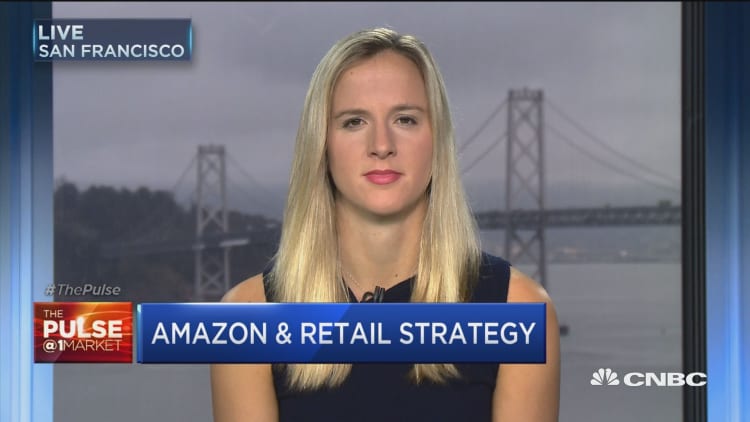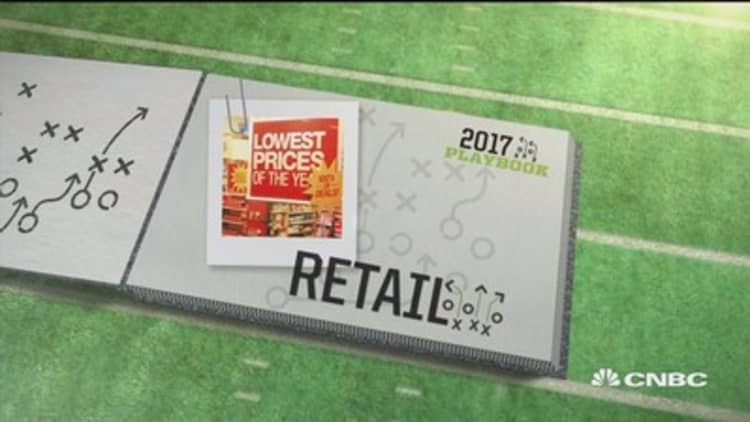
The holiday shopping season is well underway, though both crowds in-store and an onslaught of e-mails trumpeting the latest deals can quickly eclipse shoppers' festive cheer. Thankfully, CNBC is on hand to run through the top ways retailers could make the shopping experience a little easier – or more exciting – in the coming year.
The 'Pokemon GO' effect
The beacon and geolocation technology that catapulted Nintendo's "Pokemon GO" game to success this summer could help stores better connect with consumers.
"In retail, discounting has become so ubiquitous … that it has lost all meaning," said Catherine Cottney, manager of trends at market research firm Mintel. But, building on the "Pokemon GO" spirit of "urgency and playfulness," retailers would do well to introduce location and time sensitive discounts "in response to everything from the weather to political or cultural events to engage consumers through some unscheduled serendipity," Cottney said in a press release detailing key European consumer trends for the coming year.
Helping to facilitate consumers' potential to "catch" the best deals is Swirl, a Boston-based firm which provides in-store mobile marketing technology for retailers. One of the company's mission statements is to help retailers "take advantage of proximity marketing," Rebecca Schuette, director of marketing at the firm, told CNBC via telephone.
Shoppers could – via "audience providers" such as Facebook or Twitter – receive personalized messages and offers based on their proximity to a particular branch, Schuette detailed. This is enabled by geo-location technology built into smartphones. Android is leading the way, with "Google the first major audience partner implementing this on a massive scale," Schuette explained.
Swirl's clients include iconic department store Lord & Taylor and hipster clothing retailer Urban Outfitters. According to Schuette, 2016 was the year stores "moved from pilot schemes to national implementation," a process which looks set to have legs in the coming year.
Payment in 'just a movement of the wrist'
Consumers are turning from hard cash to new payment options in larger than ever numbers. With alternative payment options set to become more efficient and innovative in 2016, "it'll just be a movement of the wrist," Cottney told CNBC via telephone.
Mintel's research found that 30 percent of U.K. consumers already feel comfortable about a completely cashless society, whilst 29 percent of those surveyed said that it was more convenient to make purchases using a smartphone above other payment methods.
U.K.-based salad outlet Tossed was among the first of its kind to launch completely cashless stores earlier this year. Founder Vincent McKevitt told CNBC that ultimately, "people like interacting with computers," adding that during its first day of operation, one of his cashless outlets served 400 customers with only one person being turned away for not having an alternative form of payment. "Our phones are still our number one piece of tech," he explained, "they won't be gone for a long time."
Wearable technology is capitalizing on the growing appetite for cashlessness however, with FitBit working on embedding such technology into its devices.
But, with payments potentially requiring a little less thought in the future, the market gap for platforms which enable better money management is also widening.
Take Monzo, for instance, a mobile spending platform which incorporates a Mastercard value-added card and smartphone app. Users receive push notifications when purchases are made, which can be categorized as, say, alcohol or eating out.
"I like how Monzo tracks my spending without any extra effort," one user told CNBC.

While the idea may seem like simple common sense, interest in the platform has been significant. Bailey Kursar, head of marketing at Monzo, told CNBC via telephone that the VC-funded start-up has a waiting list of 10-20 thousand people at any given time. "People are amazed by its functionality," she said, adding that the firm intends to launch a current account next year and expects 100,000 of customers to be using this by the end of 2017.
Taking money management to a new extreme, however, is Pavlok, a firm which links its smartphone app to a wristband – with the power to electric shock users each time they indulge in a bad habit such as overspending. The company's website claims that more than 30,000 have been sold.
Talking shop
2017 will be the year "people increasingly speak to brands as easily and informally as they would with their friends," Cottney said in Mintel's press release. Employment of platforms such as Facebook Messenger, Snapchat and WhatsApp could enable them to better integrate with consumers' lives.
According to Mintel's research, 59 percent of Italian consumers surveyed said that they would like to be able to contact consumer service through an instant messenger. In other European countries including France, Germany and the U.K., the popularity of similar platforms fell at roughly a quarter of those asked.
Shop Direct, the U.K.-based online retailer behind littlewoods.com and very.co.uk, launched the Very Assistant earlier last month, a chatbot within its app designed to respond to customers' queries in a question and answer messaging format. The company intends to develop this into an Artificial Intelligence-fueled platform for release next year. Jonathan Wall, Shop Direct's eCommerce director, told CNBC via telephone that the company's focus was "helping customers to find products in a personalized way."
Demonstrating consumers' hunger for personalized communication, Wall said that the Very Assistant has been used over 75,000 times since its launch, and the company's iOS app has risen from a 4.5 star rating to a full 5 star score.
In a similar vein, earlier this year Dutch airline KLM enabled customers to receive crucial flight details via Facebook Messenger, whereas even General Electric and Goldman Sachs are on Snapchat.
By way of explaining the trend, Mintel finds that 43 percent of consumers in the Republic of Ireland, as well as 41 percent in Northern Ireland, said that raising issues with a company via social media is more effective than contacting it directly.
"Brands (can) offer consumers more reassurance," Cottney said, though she also added that they may face issues maintaining the "highest expectations yet" of customer service.

